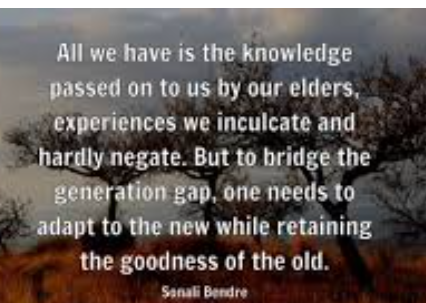Respecting elders is a cornerstone of many cultures around the world, and for good reason. Here's a breakdown of why showing respect to elders is important:
Wisdom and Experience: Elders have lived longer lives, navigating challenges, accumulating knowledge, and developing valuable insights. Their experiences can be a wellspring of wisdom, offering guidance and perspective to younger generations.
Social Contract and Reciprocity: Respect for elders is a way of acknowledging their contributions to society and fostering a sense of social order. By respecting them, we create a culture where future generations will likely respect us when we reach that stage of life.
Building Bridges: Respectful interactions create connections. Showing courtesy and consideration to elders fosters a sense of community and strengthens the bonds between generations.
Beyond Age: Respect isn't solely earned through age. It's about acknowledging someone's experience, knowledge, or position. However, elders often hold a wealth of these qualities, making respect a natural way to show appreciation.
Respectful Doesn't Mean Blind Obedience: Respect doesn't mean unquestioning agreement. It's possible to respectfully disagree with an elder while still acknowledging their experience and perspective.
Here are some ways to show respect to elders:
- Kindness and Courtesy: Use polite language, offer help when needed, and be patient with any limitations they may have.
- Active Listening: When they speak, give them your full attention. Show interest in their stories and experiences.
- Seek Guidance: Many elders are happy to share their knowledge. Ask thoughtful questions and learn from their wisdom.
- Include Them: Invite them to participate in activities and keep them engaged in social circles.

